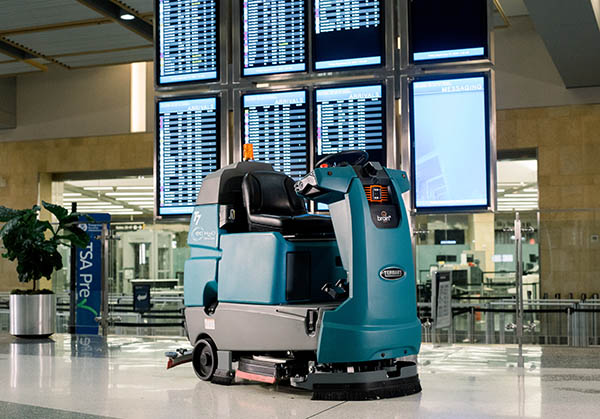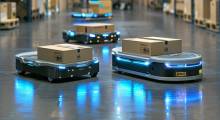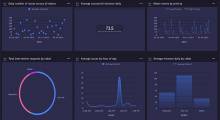Brain Corp. last week announced that it will adopt Google Cloud as the core technical infrastructure for the management of its fleet of autonomous mobile robots, or AMRs.
“With the scale and speed of growth of AMRs now powered by BrainOS, it’s essential that we have the most powerful technology infrastructure underpinning it,” said Jon Thomason, chief technical officer at Brain Corp. “Using the Google Cloud Platform enables us to deliver an elevated experience to our customers, providing a mobile-first platform with near real-time data availability and data security at its core. It also provides the tools and rich integration capabilities customers need to advance their automation efforts into the future.”
The company said Fortune 500 brands across multiple verticals benefit from the growing portfolio of BrainOS-powered robots and its privacy, safety, and efficiency tools to make managing and scaling automation easier.
BrainOS in the cloud
With the switch to Google Cloud, San Diego, Calif.-based Brain Corp said it now offers its customers a full mobile experience as part of its fleet management offering. This means customers can get near real-time notifications and insights from their BrainOS powered robot from virtually anywhere via the BrainOS Mobile app.
BrainOS on the Google Cloud also provides enhanced mechanisms for sharing data directly with customers for use in their own analytics and tooling.
Another new functionality enables robots to create site maps and report, allowing users to see full views of their facilities and track robot operations on a map.
“With the speed of change being seen in retail, logistics, manufacturing, and many other industries fast-tracking their automation strategies, it’s essential we’re able to provide valuable business intelligence through our AMR fleets precisely where it’s needed and when,” said John Gill, senior software engineering manager at Brain Corp.
“We look for partners that are willing to invest in us and work together to find solutions that advance the industry as a whole, and that’s what we’ve found with the Google Cloud team,” he said.
Article topics
Email Sign Up



















